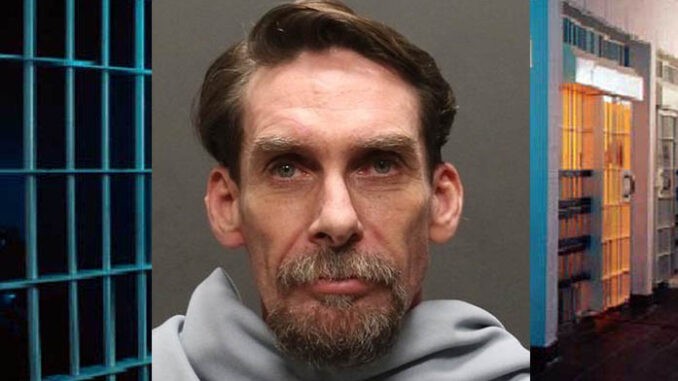
More than four years after Roger Delane Wilson admittedly shot and killed another man in what he contends was an act of self-defense, the Arizona Court of Appeals has been asked to overturn a Cochise County jury’s guilty verdict for first degree murder due to reversible errors allegedly committed by the trial judge.
Wilson is serving a natural life sentence after a jury rejected the defense argument that he was protecting himself and his mother in the early hours of June 22, 2017 when Wilson fired one round from a shotgun at Jose “JD” Arvizu. There was testimony at the trial about the antagonistic relationship between Arvizu and Wilson.
The shooting occurred on a dark roadway near Wilson’s truck which was parked in the driveway to his mother’s home in Hereford south of Sierra Vista. Minutes earlier, the two men had exchanged words at the home of a mutual acquaintance before Wilson left. And days earlier, Arvizu assaulted Wilson in the face during an argument witnessed by several people, according to multiple witnesses. .
At last year’s trial, Judge Timothy Dickerson granted the defense request for a jury instruction about self-defense. But the judge denied a request by defense attorney Chris Kimminau for instructions provided in state law about defense of a residential structure and justified use of force in crime prevention.
And that, according to Wilson’s court-appointed appellate attorney, constitutes an abuse of judicial discretion, which was further compounded when Dickerson denied a post-verdict motion for a new trial.
Attorney Daniel DeRienzo argues that under ARS 13-418, a person is justified in using deadly physical force if the person reasonably believes himself or another person to be in imminent peril of death or serious physical injury from someone who was in the process of unlawfully or forcefully entering a residential structure or occupied vehicle.
DeRienzo also argues that a person is justified under ARS 13-411 in using deadly physical force against another to the extent the person reasonably believes such force “is immediately necessary” to prevent the other’s commission of certain criminal offenses, including aggravated assault. There is no duty under Arizona law to retreat before threatening or using deadly physical force justified under the statute.
The crime prevention justification would have been in response to Wilson’s claim that he was protecting himself from an assault by Arvizu, who unexpectedly showed up on the roadway near Wilson’s truck at about 1 a.m.
According to DeRienzo’s arguments, a 1997 Arizona Supreme Court decision required Dickerson to give the jury instructions for crime prevention and defense of residential structure if there was the “slightest evidence such an instruction is merited.” But Dickerson refused to give those instructions, instead reading the jurors a sole instruction for a self-defense justification.
DeRienzo argues on appeal that if there was sufficient evidence to give the jury an instruction about self-defense, there should have been enough evidence to support the other two instructions.
“It is Appellant’s (Wilson’s) position that the aggravated assault and the events preceding the shooting should all be considered when weighing whether Appellant provided the ‘slightest evidence’ to justify the crime prevention jury instruction,” DeRienzo argues in the appeal brief.
The appeal asks for Wilson’s conviction to be overturned and the case returned to Cochise County Superior Court for a new trial. The Cochise County Attorney’s Office and the Arizona Attorney General’s Office have until early November to file a response to the appeal.
Wilson was taken into custody after the shooting and remained in pretrial detention for the 1,250 days it took for his case to be adjudicated. Much of the delay was due to Wilson’s frequent displeasure with the attorneys appointed by the court to represent him. Kimminau, who defended Wilson at trial, was attorney number eight.

